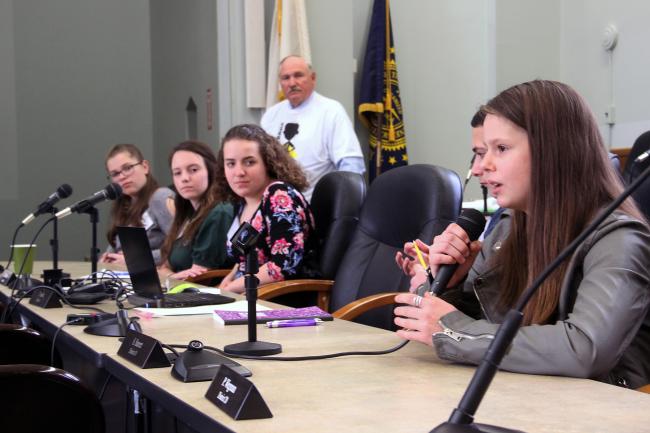Who wants to be a leader in your community? 4-H civic engagement programs empower young people to be well informed citizens who are actively engaged in their communities and the world. Youth learn about civic affairs, build decision-making skills and develop a sense of understanding and confidence in relating and connecting to other people. These life skills help grow 4-H youth into true leaders.
Exploring 4-H Civic Engagement
Spark Activity: Civic Engagement Scavenger Hunt
Every community has lots of people who are civically engaged -- doing things that make our communities better places to live. Create a map of your community that features all of the places where you can find people who are providing services to others or taking action to help others.
Your map could include:
- City Hall / City Council chamber
- Police station
- Fire station
- Local parks / recreation centers
- Chamber of Commerce or visitor’s center
- Schools
- Churches
- Food pantry
- Historical museum
- Places where youth groups meet (4-H, Scouts, etc.)
- Places where adult service groups meet (Lions Club, Kiwanis, Rotary, Optimist, etc.)
- County courthouse / county or state government buildings
What other community resources can you find? Learn more about these important resources that make your community a better place to live - and see how you can get more involved as a volunteer.
4-H Project Levels and Goals
- Learn about good citizenship
- Learn the history of your school or community
- Learn about the leadership (officer) roles in your 4-H club Tour your City Hall, county courthouse or State Capitol Visit with a local mayor, council member or school board member to learn about their role
- Learn about your neighborhood
- Learn how to be a good neighbor
- Create and carry out a plan to help someone in your neighborhood
- Visit with a County Board member to learn more about their role
- Map out area resources available to youth and families
- Organize a tour of the local village, city hall, or courthouse
- Learn how government functions
- Learn about police and fire protection, health and sanitation, safety, and tourism
- Visit with a state representative to learn more about their role
Put Your Project Into Action
Show Your Skills
- Take the Community Emergency Response Training and become a youth first responder
- Create a video about your community and post it virtually to share with others
- Research 4-H across the US and/or in other countries; create a display about what you learn
Service and Leadership
- Assist with or organize a food drive
- Help someone in your neighborhood with a project
- Take a neighbor a gift of flowers or food from your garden
- Set up a local recycling station
- Design an escape plan for family in case of a fire
- Start a 4-H SPIN Club at your school
- Take on a new job around your house
Entrepreneurship
- Become a certified babysitter
- Sell at your local farmers market
Technology Connection
- Develop a community map using drones - determine what type of map can be beneficial in your community
Connecting with a Mentor
- City Council or County Board members
- Service organization members
- Contact local police and fire departments
Events
- 4-H Hunger Ambassador
- Food Action Academy
- Community gardens
- Blessing boxes
Project Manuals & Exhibit Requirements
- Exploring the Treasures of 4-H
- Citizenship: Level 1 - All About Me
- Citizenship: Level 2 - My Neighborhood
- Citizenship: Level 3 - My Community and Me
Purchase manuals on the Shop Illinois 4-H Store.
View exhibit requirements and scoresheets on the Illinois State Fair page.
Careers

- City Administrator
- Volunteer Coordinator
- State Government
- Police / Firefighter
- Chamber of Commerce or Tourism Director
Start a Conversation
- What is the number one concern in your community?
- How can you help your community?
- Who are your best friends and why?
Credits
University of Illinois Extension staff that contributed to this resource include Tanya Hetelle and April Littig
4-H Spark Sheets are a collaborative effort of 4-H staff, volunteers, alumni and teens from across Illinois. A big thanks to the many contributors and reviewers!

